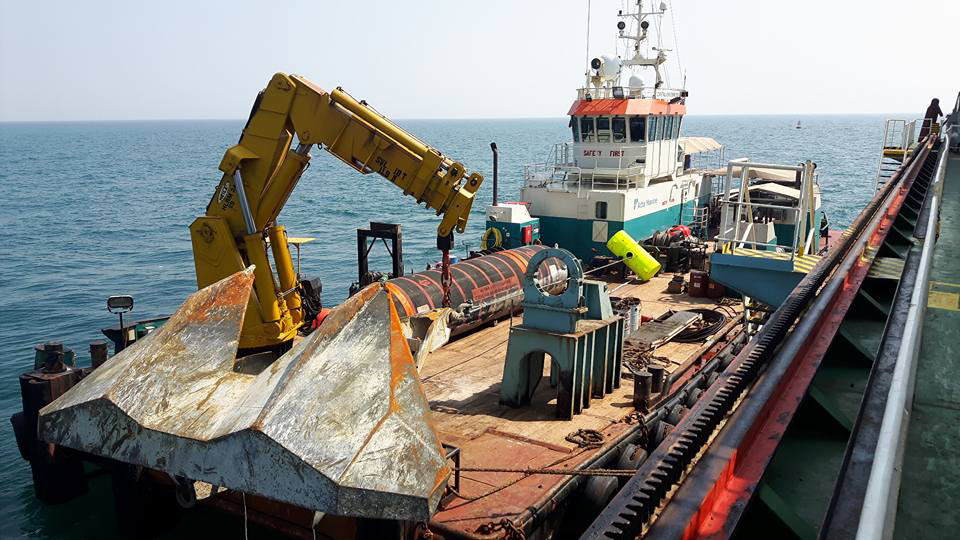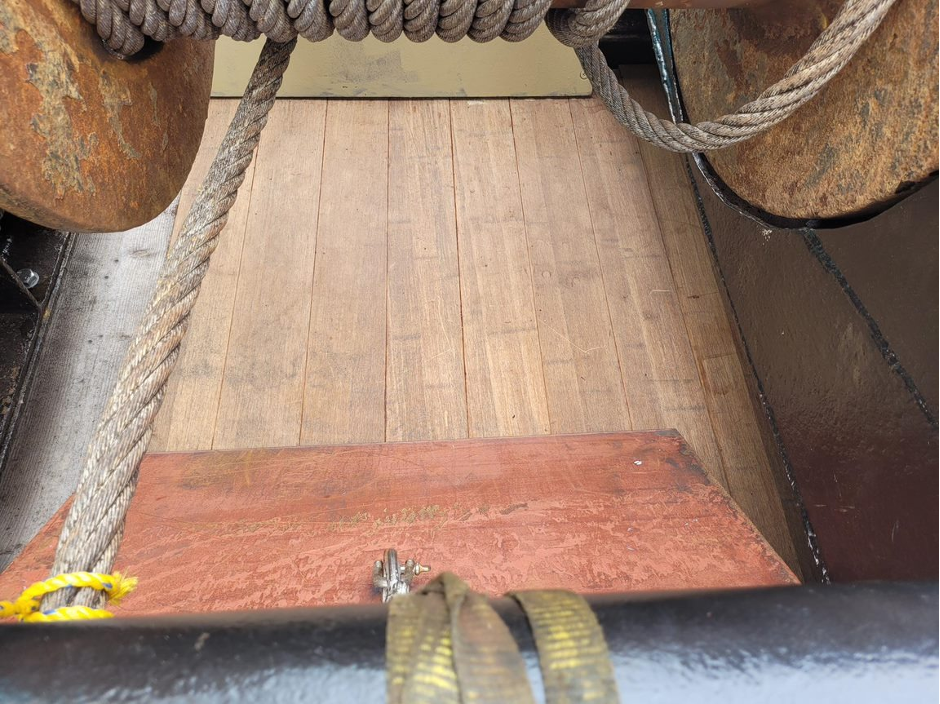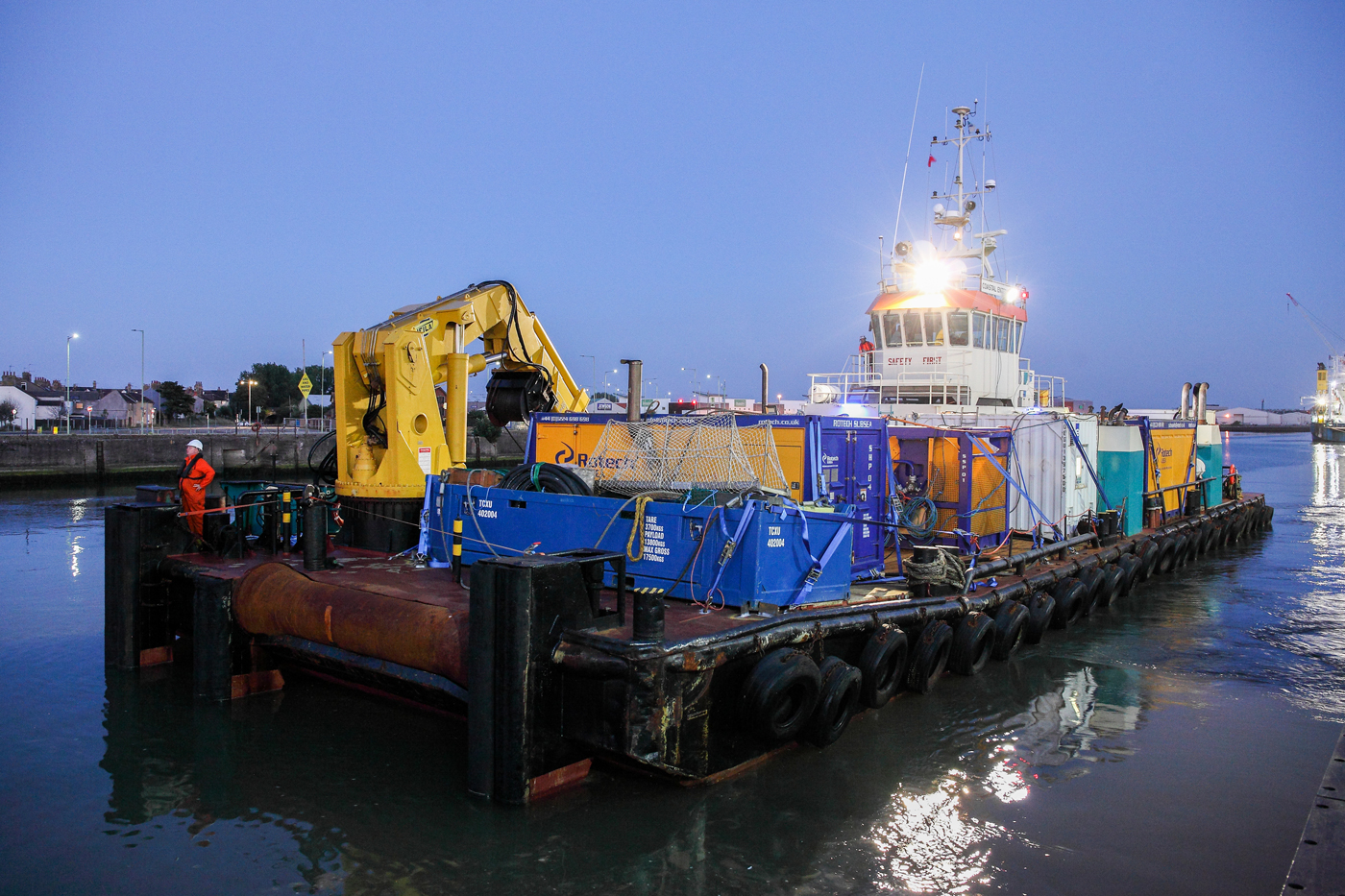Welcome aboard the Coastal Enterprise! We recently installed a part of our work deck made from bamboo.

Today we’ll be taking a closer look at how this sustainable material is faring against traditional tropical hardwood.
Acta Marine’s technical manager Cor Visser is guiding us through the process. The technical department has chosen a part of the deck where the most impact is expected. Cor: “We do a variety of offshore work for which the anchor handling winch is the most important. The area below the winch, in the centerline of the vessel, is getting most impact from steel wires, shackles and other heavy rigging once operating. We’re testing the material up to the rigors of the offshore environment and making a comparison with conventional solutions. We hope that the addition of bamboo to our ships will pave the way to a more sustainable future.”
Acta Marine is dedicated to make vessel operations more sustainable and Thomas Lambooij from supplier Dragonwood BV located in Utrecht, The Netherlands, elaborates on the production process of the material: “Dragonwood is a material that has been used in other industries for a long time. The basis for this material is of course bamboo. Bamboo is known as “magical grass” and grows in large areas of the world. It grows so fast that it is sometimes called a weed. After harvesting the bamboo stems, the bamboo is split into strips and processed into loose fibers. The fibers are pressed together in a large press, together with an environmentally friendly resin, to form a very strong and robust material. The pressed bamboo is then processed into crane mats or, as is the case here, to the specific requirements of our clients.”


Lambooij continues: “A bamboo forest absorbs 5 times more CO² and produces 35% more oxygen than an equivalent piece of forest with trees. 1000 tonnes of CO² is absorbed per hectare of bamboo forest per year. After 2 to 5 years the bamboo stem is fully grown and can be harvested. Assuming 4 years of growth, 25% of the bamboo forest can be harvested every year without any reduction in the size of the forest.” He concludes enthusiastically: “Because so much CO² is absorbed during the growth, even after the transport and processing of the bamboo stems into Dragonwood pressed bamboo, the bamboo is much more environmentally friendly than tropical hardwood.”
Source: https://www.actamarine.com/123-245_Dragonwood-bamboo-to-replace-wooden-work-decks-on-Acta-Marine-vessels

